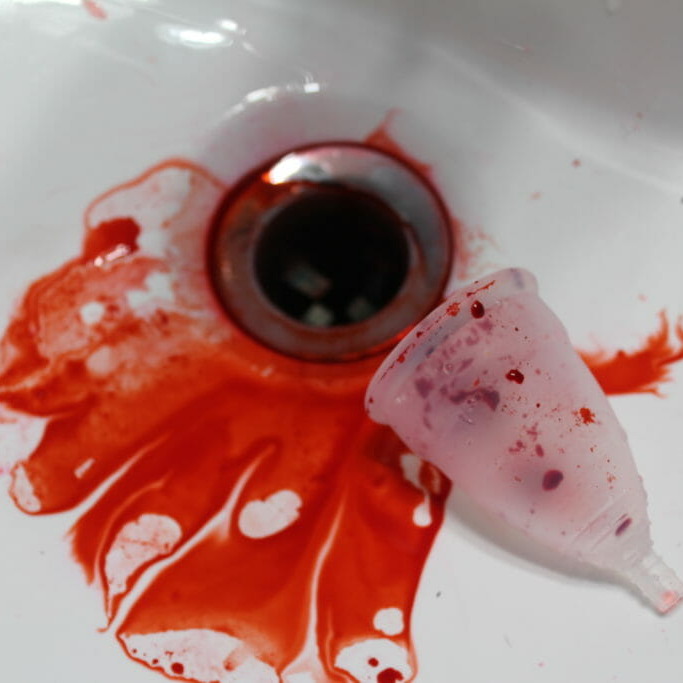
The Mount makes strides for those who face the crimson tide
Dalhousie Student Union continues to push its menstrual health campaign
Nikki Jamieson believes menstrual health products should be free and accessible in public spaces.
“It’s no different than toilet paper or paper towel,” said Jamieson, President of the Mount Saint Vincent University Students’ Union. “Menstruating is a bodily function.”
After a solid year of lobbying on the union’s part, MSVU has become the first university in the province to offer free menstrual products to students. Unions and other student services often provide these products when they can, but in the case of MSVU, the institution itself is now taking on that responsibility.
While having products available at a health centre or union is a step in the right direction, Jamieson pointed out that having to rush to a student union building between classes can still be a barrier to access.
“In order to provide an equitable system that accommodates everybody, I think that menstruating bodies need to be included in that – and it’s the responsibility of universities and all public institutions,” said Jamieson.
The administration initially pushed back against the MSVU Students’ Union advocacy. Some dismissed the idea that there was even a need for free products, while others suggested people might “abuse the system” by taking dozens of products at once.
Jamieson argued that isn’t a worry when it comes to toilet paper, so why should it be for tampons? In addition, “if somebody did that, that’s obviously someone that’s highly in need.”
Members of the union were shocked when Jamieson received a letter over the summer, indicating menstrual products were being included in the budget for the upcoming academic year.
“We were just brainstorming how we were going to elevate the issue again in the fall,” said Jamieson. “I actually called up who sent me the letter and asked for clarification, to make sure I wasn’t getting prematurely excited and that it meant what I thought it meant.”
Here at Dalhousie University, Masuma Khan is hoping the Dal Student Union can push its school to follow the Mount’s example.
“There are a lot of students on this campus that can’t afford to pay for menstrual products,” said Khan, the DSU’s vice president (Academic and External). “Menstrual products are still considered a luxury.”
Last year, Khan launched the “Periods Are Expensive. Period.” campaign with the DSU. There needs to be a culture shift she said, so more people see menstrual products for what they are: basic needs.
“Essentially, our hopes are to raise awareness about period inequality and making accessible menstrual products a budget priority,” said Khan.
She also noted that students who can’t afford menstrual products “won’t get what they could get out of their education” if those products were available, because getting their period could mean missing class.
“Anywhere that you can access a public washroom, I think you should have access to these products.”
Carmella Farahbakhsh, volunteer coordinator at South House Sexual and Gender Resource Centre, agrees.
“If you don’t have access to menstrual health supplies, maybe that means you’re not gonna leave your house,” they said. “And that’s going to impede your ability – if you’re a student – to access your classes.”
Farahbakhsh hopes this public conversation around menstrual products opens up a broader conversation about “destigmatizing access to health and wellness.”
“I think there’s a larger conversation also around like, what does it mean for students to feel held and supported in their varying body needs?” they continued. “If the institution can support you in that, that’s really incredible.”
For now, the DSU is setting its sights on the Student Union Building. The goal, Khan explained, is to have every bathroom in the SUB equipped with free menstrual products by January. The DSU can then bring student feedback to the administration, ideally proving the need for these products on campus. From there, the union will seek solid and sustainable funding so products can be placed in all bathrooms.
“If a school is providing water to students in every building, they also should be providing menstrual products – just like they should be providing gender-neutral washrooms in every building, so every space is accessible,” said Khan.
As for MSVU, Jamieson said the fight isn’t over, despite the recent milestone. Menstrual products are now available in every building on the campus, but they’re not in the washrooms. Instead, stickers on each washroom mirror direct students to where they can find them.
“This is something that we’re going to be fighting back against this year,” said Jamieson. “I wouldn’t have to go to the library or the students’ union to ask for five sheets of toilet paper. We think they should be freely available in the washrooms as well.”
Still, Jamieson hopes other administrations notice what’s happening at the Mount “and they follow suit in providing and funding menstrual products at universities – not only across Nova Scotia, but across Canada,” she said.
“Anywhere that you can access a public washroom, I think you should have access to these products.”
Where to find free menstrual products at Dal and King’s
South House Sexual and Gender Resource Centre*
1443 Seymour Street
902-494-2432
outreach@southhousehalifax.ca
*In addition to free tampons and pads, South House sells menstrual cups at a reduced rate of $20
DSU Food Bank
Student Union Building (basement), 6136 University Avenue
902-494-1106 or 902-494-2140
King’s Student Union
New Academic Building, 6350 Coburg Road (the link)
902-429-3399
coordinator@ksu.ca






